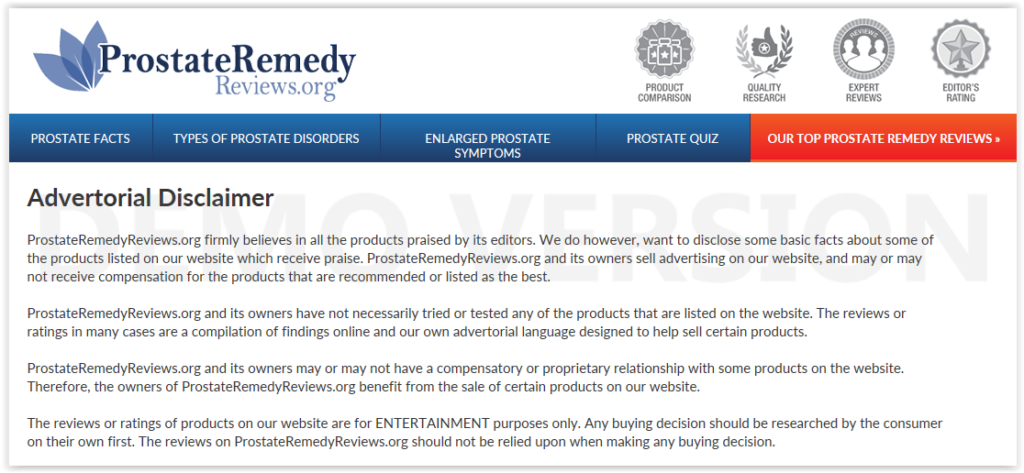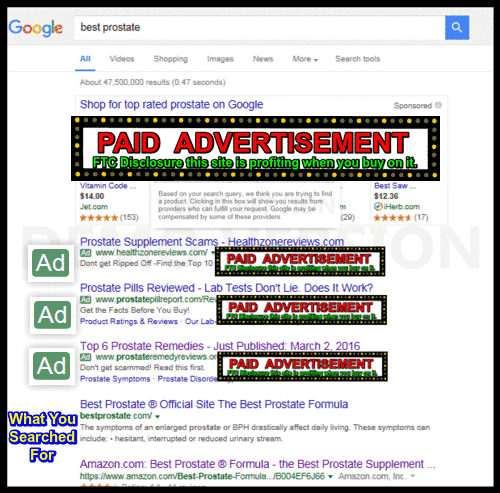 Either you are on the internet searching for information or you are looking for something specific. You go to Google, Bing, Yahoo or another search engine provider and you enter what you are looking for. Unfortunately we are being scammed by the very search engines that we use to get help. This is a daily event in almost everyone’s life. How do you protect yourself? Learn how to recognize the difference between an advertisement (the search engine is being paid every time you click on these results) and what is called an organic or legitimate search result.
Either you are on the internet searching for information or you are looking for something specific. You go to Google, Bing, Yahoo or another search engine provider and you enter what you are looking for. Unfortunately we are being scammed by the very search engines that we use to get help. This is a daily event in almost everyone’s life. How do you protect yourself? Learn how to recognize the difference between an advertisement (the search engine is being paid every time you click on these results) and what is called an organic or legitimate search result.
Lets say you are looking for a product. And you see the heading “Shop for Top Rated Product”? What you are seeing is which advertiser was willing to pay the search engine the most to appear in the first, second, or third position. There is no rating other than what a company will pay to be in those positions. Hence you are in fact being scammed to believe that this was an independent rating that is actually trying to help you. “NO” this is the search engine trying to help themselves to the money in your wallet through the product that you are purchasing. These advertising costs obviously increase the cost of whatever you are buying. This article is the true FTC (Federal Trade Commission) disclosure of what is really going on when you use the internet. True objectivity is sacrificed and replaced with greed. We recognize that Google, Yahoo, and Bing, etc. need to make a living but this should be obvious to the consumer and not disguised.
Learning and recognizing that “Ad” and “Sponsored” notices are extremely small or non-obvious. This small print can save you from being scammed. Look at the image below. Consumers are led to believe that they are seeing actual legitimate reviews and rankings concerning “Prostate” products. When in fact the titles of these ads are legally scamming consumers and are just as bad as the headlines on those magazines or tabloids you see at supermarket checkout stands.
If you are sick of this dog and pony show – know the truth. Every time you learn to discern truth from a slick sales pitch you win. For illustrative purposes we have enlarged the “Ad” image next to the small almost unnoticeable “Ad” mark placed by the search engine. This small “Ad” notice makes it legal for the advertiser to say just about anything (like a dirty tabloid magazine) to get you to go to the site and tell you that this product or that one is the best. Then the website you are directed to is supposed to have a small link to an “Ad disclaimer” or an “FTC Disclosure” statement.
- FTC Disclosure statement and in this case it is non-existent or missing. This link is from the following image the second ad above.

The third Ad “Top 6 Prostate Remedies” posts the following disclaimer on their site: The bottom line is STOP being mislead and scammed by advertisements. The best thing you can do is to learn how to identify an advertisement from what you are searching for. Believe it or not every time you click on one of these ads these search engines charge a fee (In this case $3.oo to $6.00 per click). Who do you think pays for this? You pay for this when they purchase a product – that’s who. I encourage you to look at the price of Google or Microsoft stock. Now you know why these shares of stock have such a high value.
The bottom line is STOP being mislead and scammed by advertisements. The best thing you can do is to learn how to identify an advertisement from what you are searching for. Believe it or not every time you click on one of these ads these search engines charge a fee (In this case $3.oo to $6.00 per click). Who do you think pays for this? You pay for this when they purchase a product – that’s who. I encourage you to look at the price of Google or Microsoft stock. Now you know why these shares of stock have such a high value.
Thank you for your desire to learn about this topic. When you see it at the top of the search results just remember what FLOATS.



Leave a Reply
You must be logged in to post a comment.